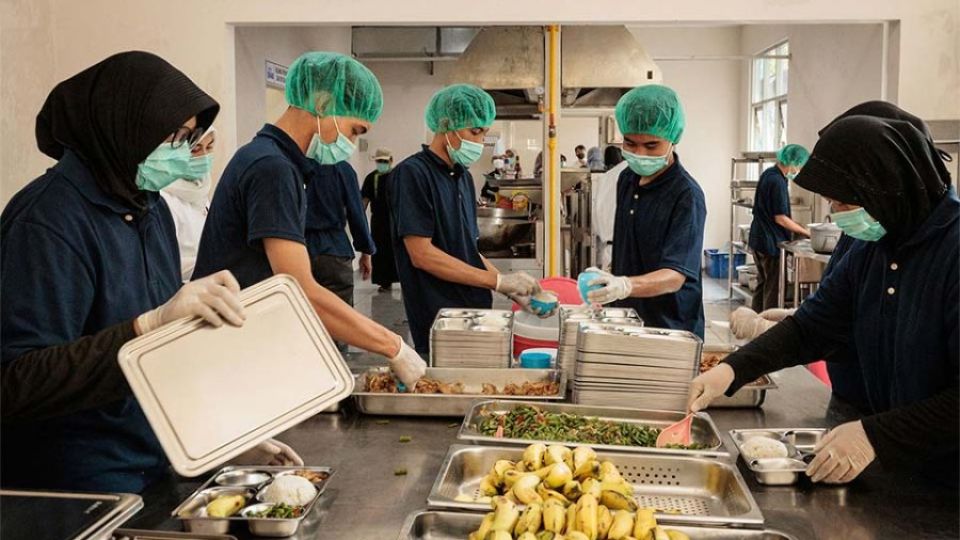January 8, 2025
JAKARTA – The government’s ambitious free nutritious meals program for students was rolled out with much fanfare on Monday, with several ministers inspecting related facilities even as President Prabowo Subianto was nowhere to be seen.
The kickoff of the multiyear program to improve the nation’s nutrition, a key Prabowo campaign promise, was welcomed by students and teachers in numerous provinces. The question, however, is whether the government can sustain the program effectively and transparently when the cameras are off.
The initiative will shift into high gear by 2029, by which time the government hopes to be feeding 82 million targeted students and pregnant women across the country.
It is too early to appraise the government’s performance, but the public has the right to know the details of the program’s administration, which has been entrusted to the National Nutrition Agency (BGN).
It is reasonable to ask questions such as who monitors the procurement of ingredients, how the budget of Rp 10,000 (62 US cents) per serving will cover the required nutritional intake, who is responsible for the menu decisions and who takes responsibility if recipients have allergies or get food-borne illnesses.
Not all of the promised 190 kitchens were ready in time for the launch of the program on Monday. In East Java, for example, only eight of the 17 kitchens could deliver. The hiccups occurred in the regencies of Pacitan and Ponorogo, among others.
The government conducted a series of trial runs, mostly in urban settings in Java, even before Prabowo assumed office in October of last year. But the analyses of the pilot tests were not made publicly available.
The public was informed only that the budget for the meals had been cut from the original Rp 15,000 per person per meal because of financial constraints.
Coordinating Food Minister Zulkifli Hasan said the government had allocated Rp 71 trillion for the program, which would suffice only until June, and that it needed Rp 140 trillion more to feed all the targeted children until December.
Food safety is another cause for concern, given the magnitude of the program. One case of food poisoning may hurt the whole agenda.
The Food and Drug Monitoring Agency (BPOM) has been involved in the program to ensure the safety of the meals. But the agency took samples only in Jakarta and Makassar, while the meals are to reach 3 million students across the country within the program’s first three months.
Regular and thorough inspections of the whole process, from the procurement of ingredients to food distribution, are imperative. Over the past years, the country has witnessed cases of food poisoning afflicting schoolchildren.
Public trust in the program will also depend on the smooth distribution of the meals. In a survey conducted by think tank Center of Economic and Law Studies (CELIOS) last month, 46 percent of respondents expressed concern about potential inefficiency in the distribution of meals.
Some 37 percent of respondents were worried about the potential for corruption, 14 percent about the lack of nutritional value on the menu and 3 percent about the budget deficit.
The program has been met with skepticism ever since Prabowo declared it a top priority on the campaign trail. The initiative was a response to the country’s high rates of stunting and malnutrition in children, impeding Indonesia’s efforts to become a high-income nation by 2045.
Pollster Indikator Politik Indonesia predicts that a successful free meals program would earn Prabowo a high approval rating. Its survey in mid-October of last year showed that 77.6 percent of respondents supported the program and 66 percent said they believed the policy could address malnutrition.
But now that the big project is underway, those responsible for it must prove it is more than just a wishful campaign promise.


